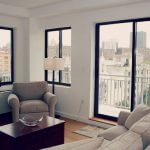Musicians and music lovers know that there is nothing more comfortable than practicing in the familiar space of your own home. For this reason, many take the big step to take their craft to the next level by installing an in-home music studio. If you’re a musician yourself, or have children excitedly learning a new instrument, you know the struggles that present when practicing at home without any soundproofing. You can typically hear the noise from any room in the house, not to mention that you may have received a complaint or two from unhappy neighbors.
Fortunately, by investing in the right materials, you can create a soundproof room similar to top quality studios with ease and in a relatively short period of time that will help you concentrate on perfecting your latest hit without intruding on the peace and quiet of others.
Methods of Studio Soundproofing
- Fill the Gaps
One of the first and most important steps to take for in-home studio soundproofing is to scan the room for any gaps, large or small, that might exist in door and window frames. Gaps are a surefire indicator that sound will escape the room and flow out into spaces it’s not wanted. Not only will minding the gaps help you stop noise from getting out, it will also prevent unwanted sounds and distractions from getting in. Take the following steps to fill the gaps in your space:
- Plug the door: if you’re not quite ready to invest in costly, heavy duty replacement soundproof doors for recording studios, there are ways to adjust your existing door to serve as an effective soundproof studio door. Add a door sweep or automatic door bottom to block the space between the bottom of the door and the floor. Both items are readily available for purchase in stores and online and are totally affordable.
- Line heating and cooling ducts: Easily reduce noise by lining any heating and cooling ducts in your studio with soundproofing duct liner.
- Plug cracks and holes: Many first-time studio owners overlook the small cracks and holes in their space, however a great deal of sound can be lost if these aren’t taken care of. A key step to recording studio soundproofing is to fill little cracks and holes with affordable products like acoustical caulk and use foam gaskets to seal air gaps found in electrical outlets.
- Create Mass and Density
One of the easiest methods to soundproofing a studio space is to add mass and density in the room. Thus more mass within the room, the more sound will be absorbed and prevented from escaping. Purchase products such as mass loaded vinyl, which is perfect for existing spaces with relatively thin walls. If building a new room from scratch, be sure to invest in thick, concrete walls.
- Decouple Your Space
Specific adjustments can be made to your studio to ensure peaceful practice without disruptions to those around you. Decoupling is an important step, and simply means to reduce sound vibrations between contact points through isolation of the contact points. This can be done by adding a false ceiling or floating floor. You can also make sure to avoid shared walls. If totally avoiding shared walls isn’t an option, position yourself as close to outside walls as possible.
Soundproofing Studio Windows
In addition to the steps above, if there are windows in your studio you should make sure to install soundproof studio windows. Soundproof windows for recording studios can have a large impact on the sound quality of the space. Having the right recording studio windows in place will make all the difference in the amount of noise released through the walls, and can effectively stop noise from traveling in. In fact, a soundproof studio window, can in some cases reduce up to 95% of external noise from getting into your space. One hesitation for many before installing soundproof windows is uncertainty around recording studio window construction. The reality is that installing windows studio users will love requires no construction to existing windows. Have recording studio doors with glass? There are options for soundproofing these doors as well.
CitiQuiet soundproof windows are a great choice for recording studios. Contact a representative to discuss your options today and be on your way to topping the charts in no time.



